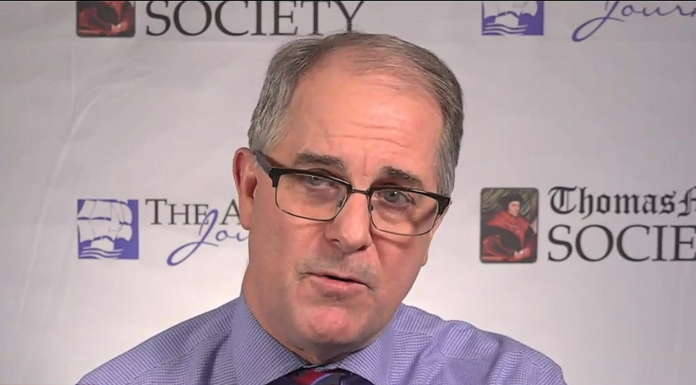At least four key battleground states—and one former red state flipped blue by egregious vote fraud—have delivered court rulings that vindicated former president Donald Trump’s complaints about widespread irregularities undermining the 2020 election outcome.
Just the News’s John Solomon reported that several state courts have now declared illegal the last-minute maneuvers by Democrat officials to circumvent state legislatures in mailing out unsolicited absentee ballots and lowering the statutory threshold for inclusion.
- In Michigan, the state Court of Claims ruled that Secretary of State Jocelyn Benson violated state law a month before the election by instructing that local election clerks to presume all signatures were valid and to reject only those with “multiple significant and obvious” irregularities. Benson had previously mailed absentee ballots to everyone on the state’s voting rolls under the pretense of coronavirus “emergency” orders.
- In Wisconsin, the state Supreme Court ruled in December that election officials including Gov. Tony Evers lacked authority to let healthy voters ignore the state’s voter ID requirements by declaring themselves “indefinitely confined.”
- In Virginia, a Circuit Court judge permanently banned the state Department of Elections’ recently implemented policy to allow ballots without postmarks after Election Day after the Public Interest Legal Foundation filed suit.
In Arizona and Georgia, as well, courts recently issued favorable verdicts allowing access to the voting data for two counties where widespread fraud is suspected.
- Maricopa County, which encompasses the Phoenix area, must allow Arizona’s GOP-led legislature to conduct an independent audit of ballots and voting machines.
- And Fulton County, overlapping much of the Atlanta metro area, may have to hand over its absentee ballots in a suit pressed by an election-integrity watchdog in Georgia after a judge signaled he was open to it. That came despite recent reports that the heavily blue county may have already begun shredding the evidence.
In addition to validating the concerns and frustrations of Trump supporters after endless denials by gaslighting media, the court rulings may also be significant in future elections.
With the exception of Virginia, all of the cases noted were from states Trump had won in 2016 that became the subject of intense scrutiny following the Nov. 3 election due to state officials’ brazen efforts to leverage their “emergency” pandemic powers for partisan political gain.
Virginia, a longtime bellwether state, likewise fell subject to systemic fraud after a questionable 2013 gubernatorial victory by longtime Clinton surrogate Terry McAuliffe, who began the process of dismantling election rules through executive order to flip the state solid blue.
Democrats, now entrenched in power at the federal level, are currently seeking to codify the corrupt and illegal voting practices in order to secure permanent majorities through controversial legislation such as the HR1 election overhaul.
As some state legislatures scramble to correct legal loopholes and reassert their authority in establishing election laws, a new deluge of court challenges from the “sue till blue” Left is, no doubt, inevitable.
“In other words,” Solomon wrote, “the election between Joe Biden and Donald Trump may be settled, but the battle over how elections will be governed—especially as it relates to absentee ballots and private funding of election clerks—has only just begun.”
Thus far, decisions have been rendered in 85 cases related to the 2020 election fraud. However, only 22 have been decided on their merit, with the rest dismissed over procedural technicalities, including several brought before the US Supreme Court.
Of those decided on their merit, Trump’s legal team and Republican allies have prevailed in 15 cases—or roughly 68% of the time.
There are 17 active cases still remaining to be decided.
Solomon reported that one of Trump’s top legal allies, Phill Kline of the Thomas More Legal Center’s Amistad Project, is also pursuing new cases in several of the disputed states above, as well as Pennsylvania .
“We’re expanding our litigation,” Kline told Solomon during a podcast interview on Wednesday.
Among his areas of focus is whether social-media giant Facebook and its founder, Mark Zuckerberg, interfered with the election by flooding Democrat cities in battleground states with hundreds of millions of dollars to support things like ballot-drop boxes and salaries for Democrat poll workers.
“I still have suits that are active in Michigan and Georgia on this,” Kline said. “And you’ll see us take new action in Wisconsin, and we will renew action in Pennsylvania.”
In Arizona, meanwhile, the legal challenges would “take a little bit of a different tack, but will involve this,” Kline explained. “The Arizona legislature is going to do an audit and we want this within the scope.”

